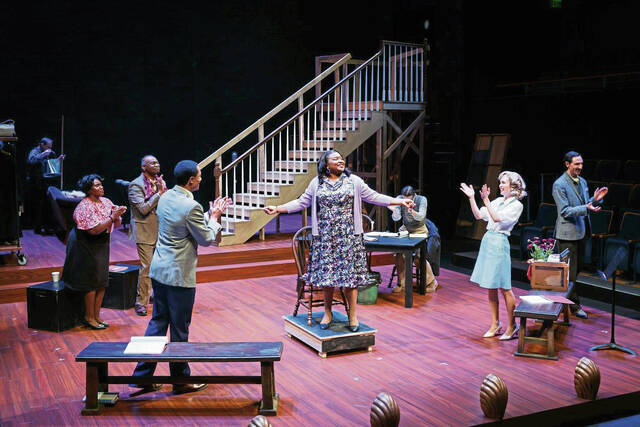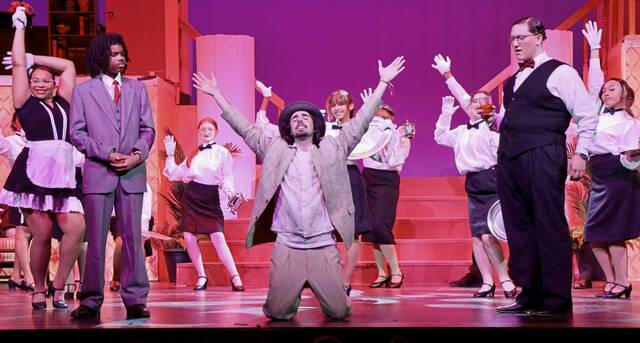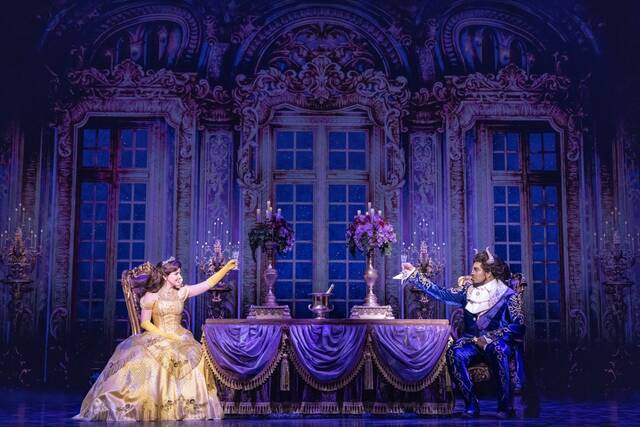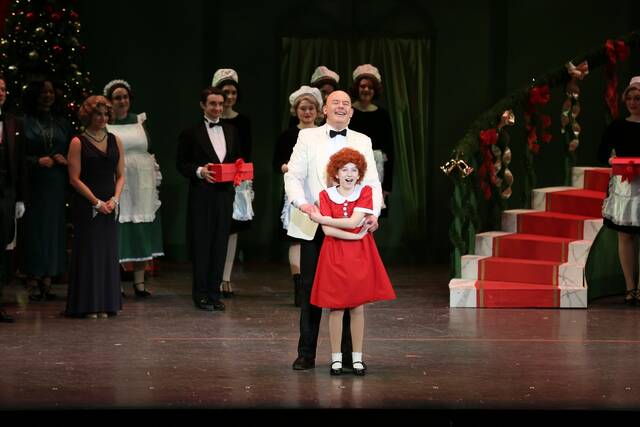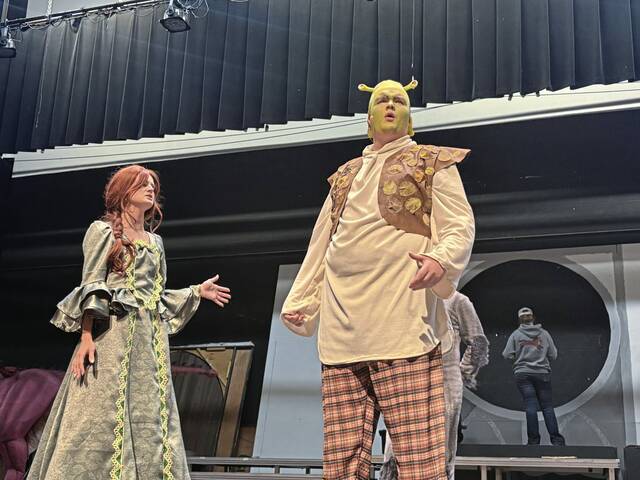For arts organizations across the nation, the first several months of President Donald Trump’s second term have been marked by anti-DEI executive orders and plans to gut the National Endowment for the Arts.
After Trump announced intentions to eliminate funding for the NEA in his May 2 budget proposal, City Theatre — along with many other companies in the Pittsburgh region and across the United States — received a letter from the NEA informing them that an already-approved grant was being terminated.
Beyond the practical matters of dollars and cents, there’s a wider concern coming from all corners: the place of art in American society and the way creativity is prioritized moving forward.
“Let’s look at history,” said Mark Fleischer, executive producer of Pittsburgh CLO. “What do we look at when we look at the Renaissance? We look at the art.”
The battle over DEI
Diversity, equity and inclusion has been a hot topic since Trump took office. In January, he signed an executive order ending DEI programs in federal government agencies and for any organizations or projects that receive federal funding. Trump also issued an executive order instructing federal agencies to “take all appropriate action with respect to the operations of their agencies to advance in the private sector the policy of individual initiative, excellence, and hard work.”
The executive orders describe DEI programs as “discriminatory.”
Most of the interviewed organizations said they have no interest in distancing themselves from DEI programs and philosophies, regardless of pressure from the Trump administration.
“There’s more ambiguity and uncertainty in this moment than there is clarity,” said Patrick Fisher, the CEO of the Greater Pittsburgh Arts Council. “There have been a lot of executive orders that have come out since Trump took office, but we also know that a lot of those executive orders are currently being challenged on various levels.”
For example, a wide coalition of government, restaurant, university and other workers joined together to file suit against the Trump administration in February in the case National Association of Diversity Officers in Higher Education vs. Trump. While a preliminary injunction against the executive orders was issued by a federal court later that month, the government appealed and was granted a stay on that injunction by the Fourth Circuit Court of Appeals in March. The future of this litigation remains murky.
Diversity, to the arts community, isn’t just marked by race, gender or sexual orientation; it’s about bringing a range of experiences, ideologies and approaches to creative projects.
“I think it’s important to make sure that everyone has opportunity and everyone feels seen so that talent and access can thrive,” said Pittsburgh Ballet Theatre executive director Nicholas Dragga.
Fisher reinforced the Arts Council’s commitment to their values, regardless of who is in the White House.
“This is all non-negotiable. We cannot uphold our mission as an organization if we are not deeply embedding these values and principles into our work,” he said.
In the view of Fleischer, DEI simply means serving the Pittsburgh audiences that attend the company’s shows as best they can.
“We believe we’re a theater for the entire community. It’s the work we do to tell the stories of humanity.”
City Theatre co-artistic director Clare Drobot said the concepts of diversity, equity, inclusion and accessibility have been a part of City Theatre’s DNA since its inception 50 years ago — the word “diverse” is in the company’s mission statement: “To provide an artistic home for the development and production of contemporary plays that engage and challenge a diverse audience.”
“I think we see it as an intrinsic part of the organization, of how we work with artists, the stories we tell on the stage, how we invite audiences into conversation,” she said.
Monteze Freeland, co-artistic director at City Theatre, said it began with free programming that was taken into the communities to spread art around the city.
“To do that … you have to get to know additional people. You want to have them and their stories be a part of the stories onstage,” he said. “So it’s not going to go anywhere. It can’t go anywhere, because then we wouldn’t be City Theatre.”
Pittsburgh Public Theater’s director of human resources Lisha Logan took a similar position when it comes to PPT’s philosophy on DEI.
“We operate in inclusivity. It’s not a siloed thing. Everyone is part of the work,” she said. “Our mission and vision from the beginning has always been about being inclusive. We aren’t changing, because we operate in that every single day.”
For Pittsburgh Playwrights Theatre Company, there’s no disentangling DEI from the practices of the company.
“Since our founding, it’s not that we practice DEI, it’s just who we have been. … We practice every element of what it means,” said Liz Reiss, managing director of Pittsburgh Playwrights Theatre Company.
“We’ve been a leader in that, and I’m proud of that,” added Pittsburgh Playwrights producing and artistic director Mark Clayton Southers. “We want to be a reflection of our city.”
NEA funding in peril
On May 2, many organizations and individuals who had been granted NEA funds received a letter terminating their funding.
“The NEA is updating its grant-making policy priorities to focus funding on projects that reflect the nation’s rich artistic heritage and creativity as prioritized by the President. Consequently, we are terminating awards that fall outside these new priorities,” the letter read, according to NPR.
Those priorities were listed in the letters.
“The NEA will now prioritize projects that elevate the Nation’s HBCUs and Hispanic Serving Institutions, celebrate the 250th anniversary of American independence, foster AI competency, empower houses of worship to serve communities, assist with disaster recovery, foster skilled trade jobs, make America healthy again, support the military and veterans, support Tribal communities, make the District of Columbia safe and beautiful, and support the economic development of Asian American communities.”
The agency’s funding for 2024 was $207 million, representing approximately 0.003% of the federal budget.
NEA grants range from $10,000 to $150,000. City Theatre was set to receive a $15,000 grant for its 2025-26 season-opening play, “Another Kind of Silence,” the world premiere of a bilingual production in English and American Sign Language. Fortunately, the show will go on.
“It’s not going to make or break our ability to do that show,” City Theatre’s managing director James McNeel said of the rescinded funds.
All 10 directors of individual arts disciplines at the NEA resigned May 5. McNeel and Fleischer both described the exit of NEA director of theatre and musical theatre Greg Reiner as a huge loss. Reiner had been in his position since 2015 and was a valued presence in the nationwide theater community.
McNeel pointed out the NEA has long been a “political football.” The agency was created in 1965 under President Lyndon B. Johnson and faced pushback in the 1980s and 1990s.
Fleischer said government commitment to funding the arts can be — and often has been — bipartisan, but that the present political climate’s polarization is setting off alarm bells.
“We need to look at the red flags that are present in this moment and look at them through a historical context of similar demonstrations of rising authoritarianism in the past and recognize that’s happening here in the U.S. in the present moment,” he said. “All of us, on both sides of the aisle, have a responsibility to challenge that.”
Pittsburgh Public Theater and Pittsburgh CLO have no pending federal grants. Logan said PPT’s last grant was for 2024 production “The Coffin Maker,” a world premiere from local playwright Southers. The CLO’s last grant was for a 2023 entry in its Gallery of Heroes series of educational musicals called “The Boy from Troy,” which told the story of civil rights leader and longtime Georgia congressman John Lewis.
Fisher was especially concerned about the whiplash of the grant-retracting letters.
“They had done the steps, they had gone through a process. There had been a panel of experts. There had been staff reviews and then they were awarded. … These are things that were awarded, versus ‘we’re not going to do grants next year.’ ”
“It feels like a lack of transparency,” Logan said.
City Theatre’s McNeel said: “If you don’t believe in public funding for the NEA, great, let’s talk about it. But to do it in this way? Congress is ultimately going to make the decision whether it will be an appropriation next year. In the first Trump administration, he tried to zero it out then, too, and you know what Congress did? They increased the funding. Congress makes the decision here. My fear is, they may come through and give it money again, but what’s left of the institution?
“Right now, there’s not a whole lot left of it, unfortunately, but I think we still (need to) fight to protect and preserve it in hopes that it can be rebuilt in due time.”
Pittsburgh Ballet Theatre also has no current NEA grants, but it has received funding in the past and worries about the possibility of future federal sponsorship, according to Dragga.
NEA funding also represents more than just the immediate cash infusion. That money provides a level of confidence for other donors and investors who are considering giving to local companies.
“The ecosystem is so fragile that that is very concerning to us. It’s going to impact our peer organizations. … We’re all in this together,” Dragga said.
The bigger picture
Theater organizations already walk a balance beam when it comes to their budgets; they aren’t primarily funded by ticket sales. For example, Pittsburgh Ballet Theatre garners only 50% of its funding from earned revenue. Dragga said PBT has about 160 employees, and he is concerned about donor and economic uncertainty that could put those jobs in jeopardy.
Logan emphasized the human element of money struggles as well. “A lot of these theaters offer opportunities. It is art, but people’s livelihoods are dependent on the art, and it shouldn’t be devalued.”
“There’s always trouble with any arts organization when it comes to funding and raising funds,” Southers said. “The artists who are making art know that there’s not necessarily a ceiling for ideas, but there might be a ceiling for how those ideas are represented.”
He cited examples such as cutting back on budgets for scenic and costume design or finding creative ways of housing out-of-town artists as examples of “making it work” when funding cuts occur. “These are the kinds of things you do when you’re in a downturn.”
Outside of support from earned revenue, Pittsburgh’s theater companies are funded by a mix of individual patrons, foundation support, corporate sponsorship and government grants. Many of those come from the Pennsylvania Council on the Arts, which itself receives NEA funding.
Drobot laid out three ways supporters can lift up their local arts organizations at this time.
“Go see art. Your ticket dollars are your voice, so go out and engage. … Contact your elected officials. Let them hear how important art is. And then lastly, if you’re able to and it’s financially viable for you, support with your donations,” she said.
There is hope that the region will come together to protect theater companies and commit to a future that includes telling the full scope of human stories on the stage.
“As an audience member, it’s time for me to see everything. As an artist, it’s time for me to keep creating boldly,” Freeland said. “We can’t fold to this moment. We must continue to push art forward, for every community, for every voice. For an arts leader, it’s time to inspire, by also sharing what would happen — what would our world look like? — if this art were to disappear.”



